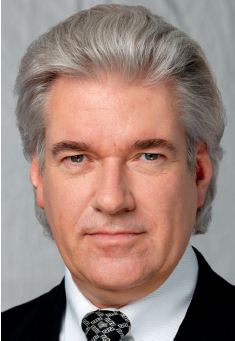
Industrial Biotechnology (IB) can be applied across many industries, such as in the pharmaceuticals and cosmetics as well as in the household and textiles sectors. To conduct research in this field, companies often engage in joint ventures with other companies, institutions or universities in order to achieve the greatest possible efficiency in pushing forward with R&D activities for the relevant projects.
Necessary contractual provisions Cooperative R&D activities and/or agreements for contract research can offer tremendous added value for the interested parties. But they also carry the potential for conflict, which should be minimized to the greatest possible extent as early as during the contractual negotiations.
In the field of IB, contractual negotiations involving cooperative R&D activities and/or contract research will focus in particular on how to divide and compensate such industrial property rights that may arise in the course of the R&D activities. In this regard, the question is who is to hold the rights to inventions made within the scope of the cooperation between the parties under the agreement, and how compensation, if any, for these kinds of inventions is to be structured. As a follow-up question, it is necessary to clarify whether the other party is supposed to have a license to use such industrial property rights. The interests of both parties with regard to publication rights should also be provided for in an agreement.
Particularities involved in cooperation between industrial firms and universities Since the „university professors‘ privilege“ (Hochschullehrerprivileg) was abolished in 2002, they can no longer freely dispose of their inventions when working together with companies. Like other employees, they are obligated to report these kinds of inventions to their employer. If the invention is of interest to the university, it will claim and exploit the invention commercially. If the university has no use for the invention, the university will release it to the professor for his or her own free use. By law, the university professor has the option of disclosing the invention (positive freedom of publication) or of not disclosing it (negative freedom of publication). These rights of the university professor can, however, be waived in agreements between him or her and the industrial firm. Industrial firms should involve the universities in the R&D agreements with regard to the aspects mentioned herein and should obligate them to claim service inventions within the scope of their R&D agreement and transfer them (in advance). In addition, a contractual agreement should be reached with the university professor regarding his or her waiver of positive and negative freedom of publication.
Cooperation between industrial firms and universities can take the form of contract research or research cooperation. In contract research, the company awards a specific research contract and bears all of the costs, thereby virtually outsourcing the research to the university. In a research cooperation, each of the contracting parties makes a certain contribution necessary to the success of the cooperation project.
In practice, three main contractual models (Hamburg, Munich, Berlin) have become established for cooperation with universities. However, there are essential differences in how these models are structured.

The Hamburg contractual model In the Hamburg contractual model, all research results are supposed to be the property of the industrial partner. The transfer of the research results is secured by having the university waive its right to claim the invention vis-à-vis the university professor and having him or her assign the rights to all future inventions to the industrial partner. This model also calls for the university professor to waive his or her freedom of publication, both positive and negative. This relieves the university and the university professor of additional administrative work and costs.
The Munich contractual model The Munich contractual model is entered only between the university and the industrial partner. In this model, the university is supposed to be entitled to the property rights to an invention. An exception is made for inventions made jointly. Both contracting parties are jointly entitled to the rights to these inventions. The university handles the patenting. The industrial partner can acquire the patent rights subsequently. This model does not, however, include sufficient provisions for the granting of future licenses. In addition, since the university professor is not involved, it is not possible to agree to a waiver by the university professor of his or her positive and negative freedom of publication. A separate agreement between the him or her and the industrial partner is needed.

